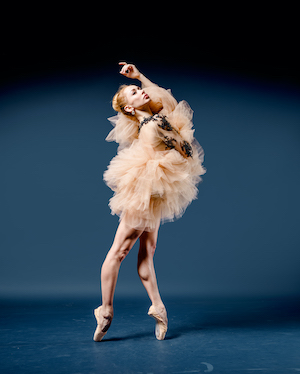“Dionisio – La Vid I Mil Noches” (“Dionisio – the Vines and 1000 Nights”) is the name of Rafael Amargo‘s latest crossover dance show which recently started its international tour. The flamenco star and choreographer Amargo, who was awarded the Gold Medal of Fine Arts by the Spanish King and the Andalusian medal for his current production “Dionisio” is one of Spain’s best known and most dazzling artists. From his early youth, he was taught by famous flamenco experts but was among others also trained in Martha Graham’s Technique in New York some years ago. He performed on major international stages around the world and created numerous productions, mostly mixing up flamenco with other dance styles. He is also successful as a film actor, TV star, fashion designer and model.
His Greek mythology based dance piece “Dionisio – La Vid I Mil Noches”, which combines flamenco, classical ballet, contemporary dance, B-boying, singing and acting, has been already shown with great success in the ancient Roman open-air amphitheaters of Malaga, Itálica (Sevilla) and Baelos Claudia (Cádiz) last summer.
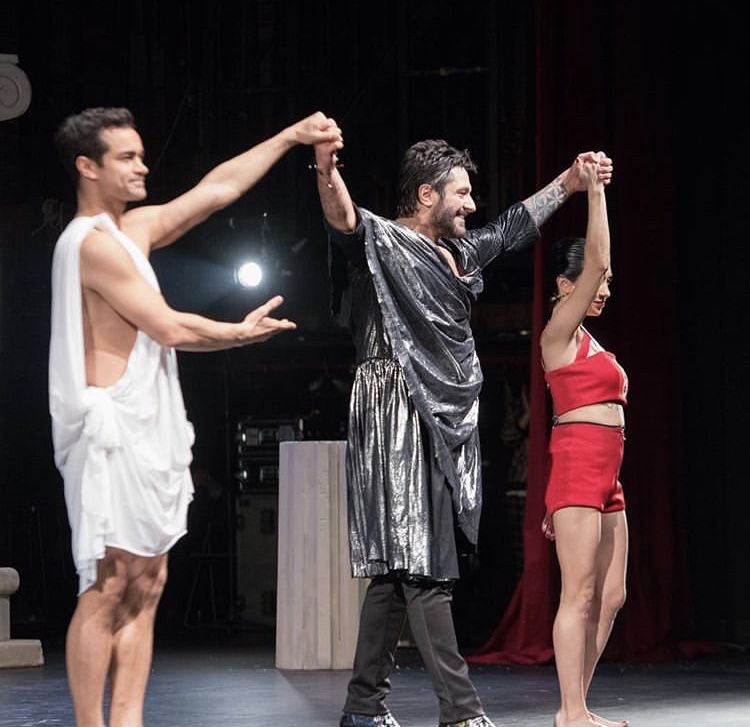
For the resumption of “Dionisio”, which launched its world tour from 22 February to 17 March 2019 in a newly revised version in the renowned theater “Apolo” in Barcelona/Spain, Amargo brought no one less than US dance star Rasta Thomas as the acclaimed soloist to Europe.
Amargo could not have chosen better: Rasta Thomas, he is also known as a martial artist, gymnast and choreographer, is currently considered one of the world’s best and most versatile dancers of his generation. In “Dionisio” he not only embodied the main role of the god Apollo, he literally spreads divinity with every movement, every look, every gesture and enchanted the stage with his charisma. He seemed to have studied and internalized his role perfectly and he also visually corresponds to the template. Incidentally, he choreographed most of his wonderful solo parts by himself, not only making his special style of moving a great way to dance, but also setting essential artistic highlights that gave the piece a special touch and contributed significantly to the success of the production. Whenever he appeared on stage as the god Apollo, he was all that Apollo stands for, in one person: the God of the Sun, the Light and the Clarity, Purity, Truth, Brightness, Health, Knowledge, Beauty and Art. The audience literally held its breath regarding the quietly endured pain, the sanity, the masculinity and at the same time sensivity as well as the spiritual beauty Rasta Thomas showed in this piece.
Rafael Amargo as his dancing duet partner and antagonist turned on stage into the Greek god Dionysos, who – as he says himself – corresponds to his own personality and is very similar to his own lifestyle: lots of bacchanalia, intoxication, much theatricality, exuberant greed for life, excesses, sensuality, but also tragic moments. Dionysos is considered the god of theater, wine, ecstasy and fertility…, in the words of Rafael Amargo “a mythical, magical, complex, manipulative, exciting character, masterful in his wisdom and one of the greatest in Greek mythology”.
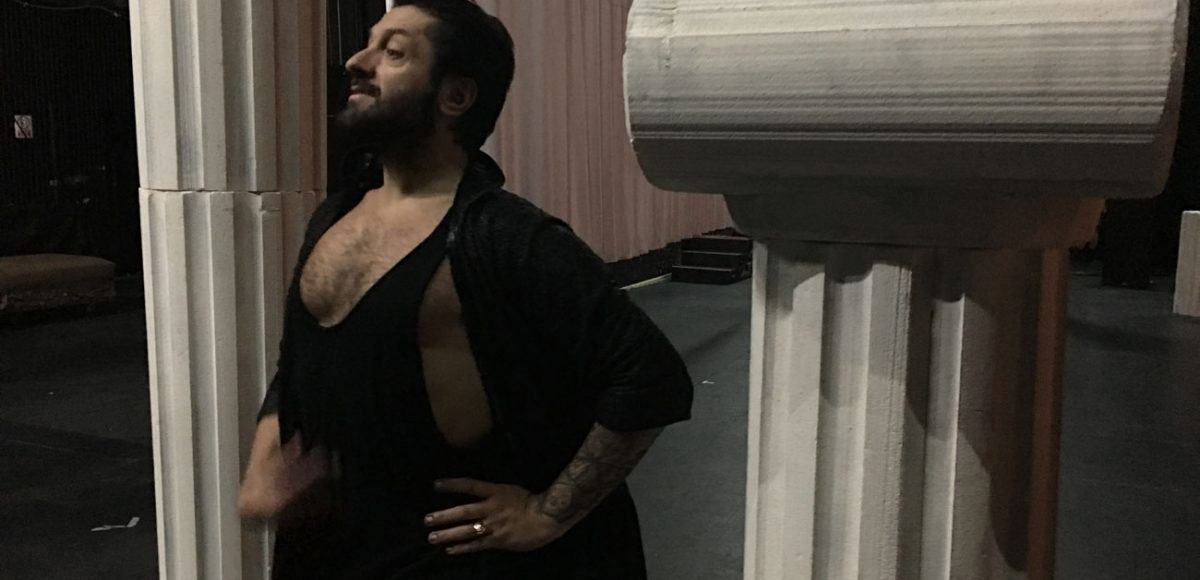
In an interview, Amargo explained that he can identify so well with the character of the god Dionysos because of his “unique madness”. Amargo wanted to create a show “with body and soul”, powerful and sensitive, sexy and erotic, good and evil – and he succeeded pursuing this plan by realizing his very creative concept which has the potential to fascinate many fans not only in Spain but also worldwide. In this production he presented himself as Dionysos as a character in which there live at the same time creative powers, chaos, bliss, pain and wildness, a recalcitrant who wants to embrace the whole world in its infinite variety. The deep disturbance and excitement but also the desire that rages in this personality and the contrast to the pure character of Apollo is expressed in this piece by wonderful music, drama and excellent dance. The combination of all these ingredients of this extraordinary piece demanded a lot from the 26 protagonists.
Above all, guest star Rasta Thomas conjured the most touching and powerful moments on stage. He is outstanding not only as a dancer but also due to his acting abilities and was able to fully exploit his qualities in this production. His aesthetics and expressiveness are unique. Even in quiet moments, when he was present on stage without dancing, his body language told stories that did not require language skills. Among others one literally could heartbreakingly feel the despair when Apollo fell in love with his own sister but wasn’t allowed to live this love. Rasta Thomas showed Apollo’s soul in all its facets: his strength and at the same time vulnerability, his affection and longing, trying to handle his deep feelings in protection of his sensitive soul, his efforts to keep his dignity even in pain, letting his inner peace winning over his inner fights…, inside deeply hurt but not showing broken to the outside. A real masterpiece of this versatile artist.
Furthermore, he was perfectly able to express Apollo’s superiority in conflict with the stomping, roaring, loud Dionysos. He showed an Apollo who – due to compassion and sensitivity – didn’t push Dionysos down into the emotional abyss, but stayed untouchable and proud no matter of how rough and rude Dionysos’ physical approaches or emotional subjection tries were.
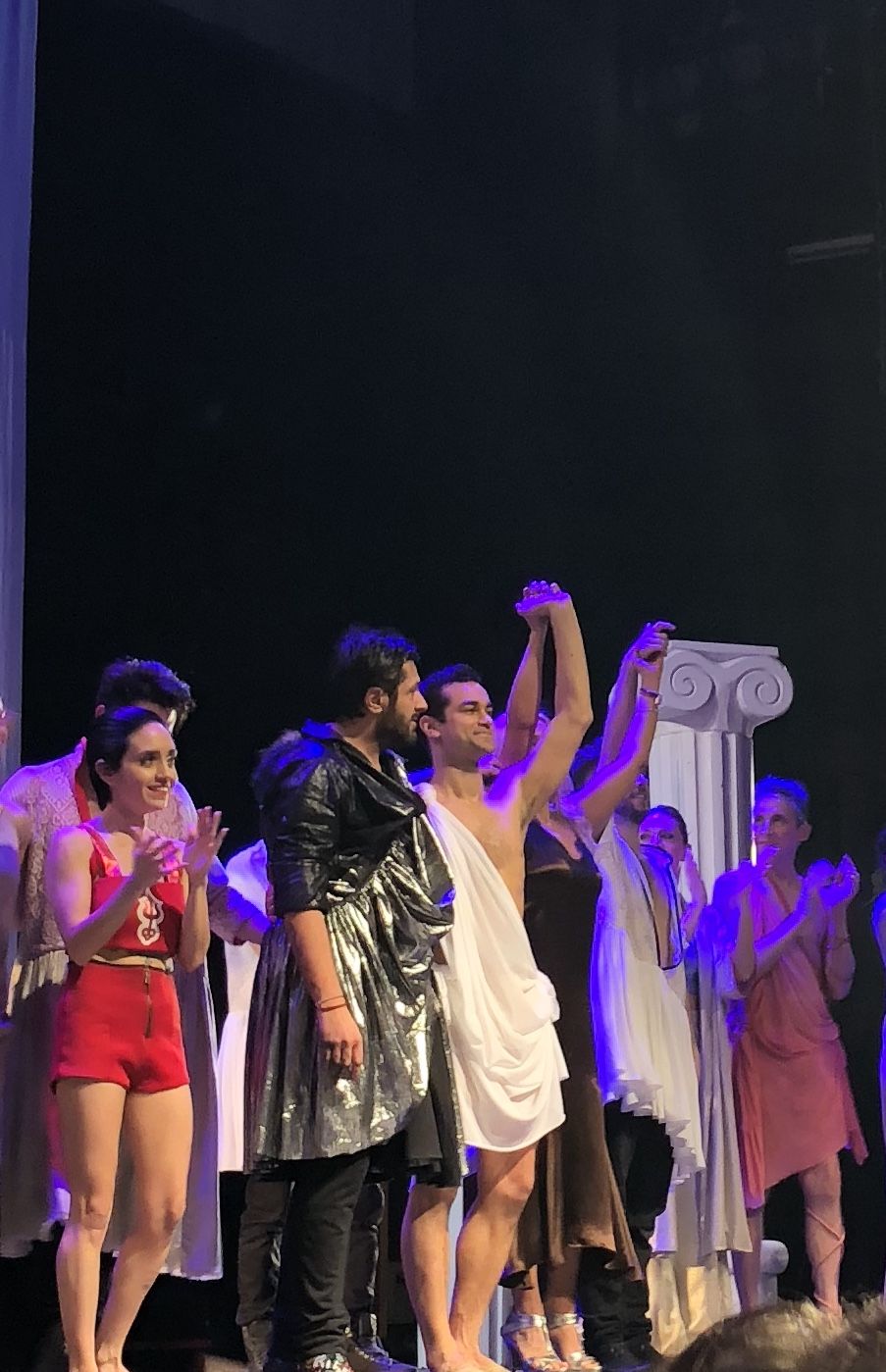
But also in the scene when he didn’t play Apollo but danced the role of the fighting bull, Rasta Thomas showed his versatility: it undoubtedly benefited him his background as a martial artist and he blended his skills in the field of martial arts so perfectly and smoothly with the dance that even a new style seemed to emerge. One literally could see a snorting bull on stage, ready to kill and roll it all down. This mutability was unbelievable to watch.
Anyway, whenever Rasta Thomas danced, the audience was mesmerized. Light as a feather and powerful at the same time, technically brilliant, dynamic but also elegant, very aesthetic and harmonious at the same way. He swirled pirouettes like a whirlwind, showed stunning jumps and powerful lifts. In between, he used his special vocabulary of movement to reflect or contrast his duet partners or to refer perfectly to flamenco stylistics, passionately and then again soft and supple. In part, he did not just seem to dance, but literally fly across the stage…, supernaturally. A true eye candy that even moved some people in the audience to tears.
In general Rasta Thomas’ performance and stage presence also seemed to cheer on and inspire the other protagonists. Among others the flamenco dancers must also be mentioned as masters of their field: astonishing was Daniel Navarro from Argentina, who had such fast feet in his flamenco solos that one’s eyes could hardly follow. Expressive and technically very good were as well the Spanish flamenco dancers Daniel Flores, Angel Güell and Inaki Marquez. Remarkable was also the female flamenco duo Sandra Hita and Claudia Martinell as mother and daughter, while talent Sandra Abril Hita convinced in contemporary style and her stage partner Mariana Gatto Duran as Afrodita even mixed three styles: flamenco, classical ballet and Contemporary…, she also danced a solo in point shoes and was partnering with Rafael Amargo.
And last but not least as well the three acrobatic and dynamic B-Boys, Ugo Boulard, Diego Garrido and José Daniel Moreira contributed a lot to make the show concept even more interesting when they showed their impressive hip hop and street dance tricks.
But also the actors of this production were great: Antonio Albella as Zeus played his role as the father of the gods convincingly. Perfectly fitting in their roles as Greek gods are also Rafael Moreira and Gerardo Rojas to name. By the way: Gerardo Rojas was also responsible for the dramaturgy and the lovely lyrics that connected the various scenes of the show. Good were also Cecilia Sarli as Artemis, as well as Amargo’s long time companion Luciana Buongianino as Dionysos’ conscience and in funny and sometimes even strange roles appeared Jordi Donate, Isabel Llanos, Maite Escobar and Mária Gonzáles.
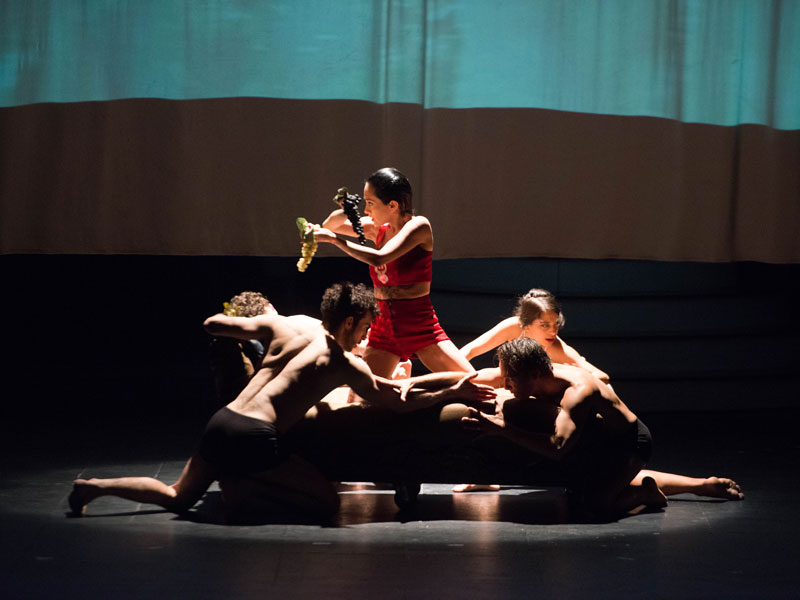
An important part of the success of this show also has the music the wonderful music of the composer Jesús Durán, which one can’t get out of the head as soon one hears it. Impressive were also the performance of the powerful voices of singing star Gema Castano as well as of David Coronel who literally sang his heart out interpreting some very emotional songs in traditional flamenco manner. Both singers received lots of applause for their poignant solos as well as of course the audience also appreciated Rafael Amargo who has many fans not only in the flamenco loving community.
But the rightly celebrated favorite of the audience was the charismatic guest star Rasta Thomas, who was enthusiastically applauded by the audience after each of his scenes but also got long standing ovations during the curtain call.
The next station in the tour schedule of “Dionisio” is the 65. International Theatre Festival in Merida/Spain – more performances in America and Europe to come.
“Dionisio – La Vid e Mil Noches”, Barcelona, Teatro Apolo, 22nd February to 17th March 2019


